Penguin colony found in Antarctic sign of climate change
- Published
- comments
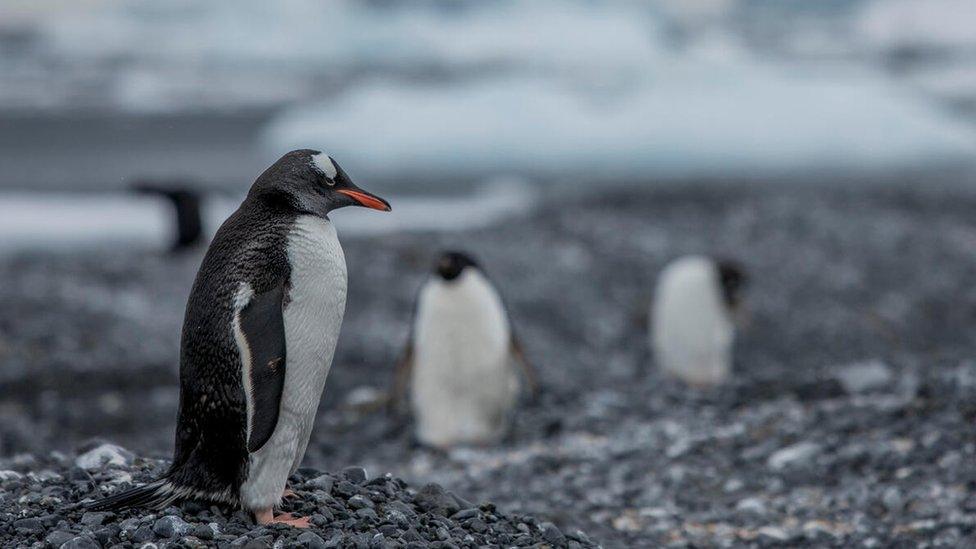
A group of penguins has been found in the Antarctic much further south than experts expected.
"This is the climate crisis happening right in front of our eyes," says Louisa Casson, from environmental charity Greenpeace's Protect the Oceans campaign.
The penguin colonies, which have not previously been studied, were discovered by researchers from Stony Brook University, in New York.
They included a new colony of gentoo penguins which has been found on Andersson Island on the north eastern tip of Antarctica.
It's the furthest south that gentoo penguins have been recorded - normally that area of Antarctica is far too icy for the animals to successfully raise their chicks.
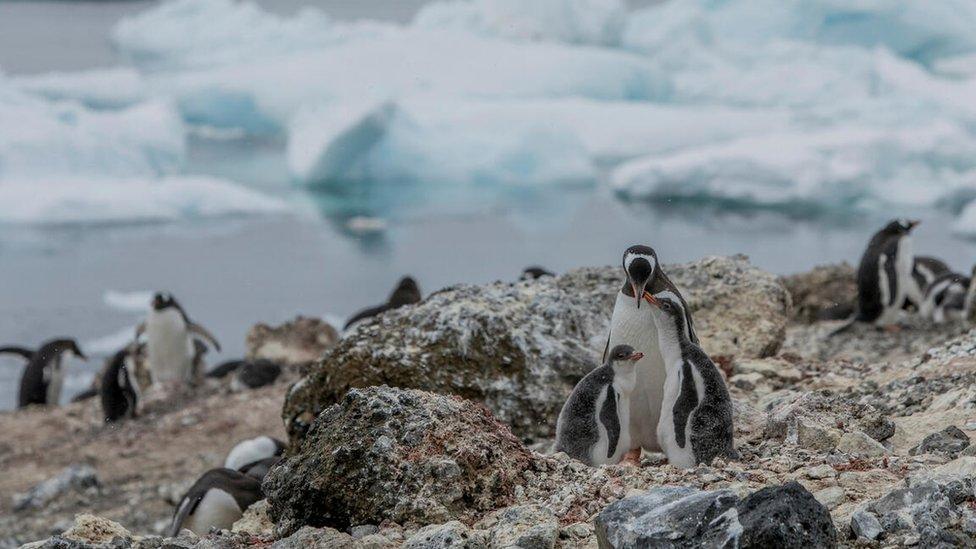
A gentoo penguin colony on Andersson Island, Antarctica
What's it like to live in Antarctica?
Gentoo penguins have streamlined bodies and strong, paddle-shaped flippers that propel them up to 22 miles an hour through water, faster than any other diving bird.
Gentoos like ice-free zones, including sheltered valleys and cliffs. They gather in colonies ranging from a few dozen to many thousands.
As sea ice melts in areas of the Antarctic, it creates more favourable conditions for the gentoos and they move further south.
"In the Antarctic, one of the most remote places on Earth, we are seeing a process where this species of penguin is spreading into new habitat and breeding further south," says Louisa Casson.
Dr Heather J. Lynch, a professor at Stony Brook University added: "As expected, we're finding gentoo penguins nearly everywhere we look - more evidence that climate change is drastically changing the mix of species here on the Antarctic Peninsula."
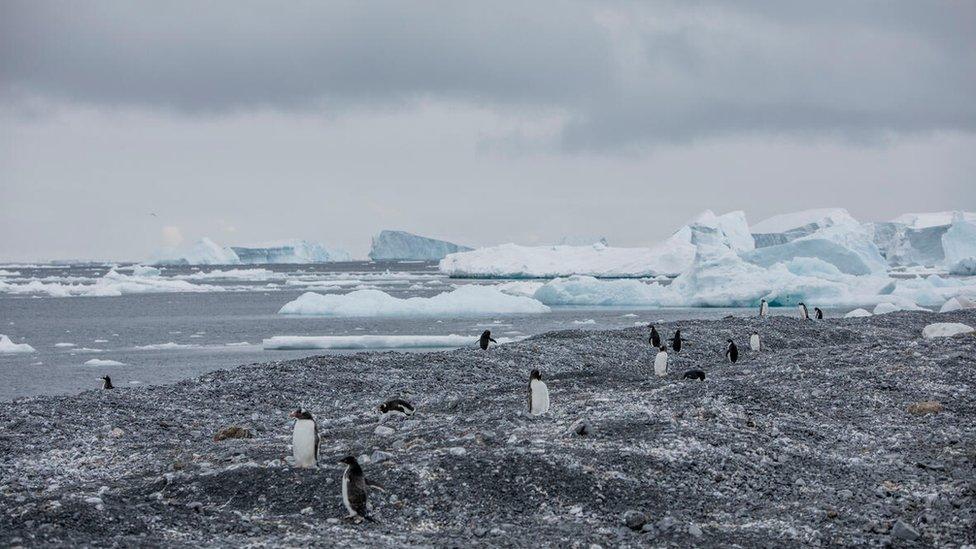
Greenpeace and Stony Brook University are researching remote penguin colonies in the Antarctic
Scientists from Greenpeace and Stony Brook University are carrying out the first-ever counts of penguin colonies on remote Antarctic islands, to get a better understanding about how the animals are being affected by climate change.
Research is showing some species are declining because of the disappearing sea ice, while others are increasing due to rising temperatures.
- Published20 January 2022
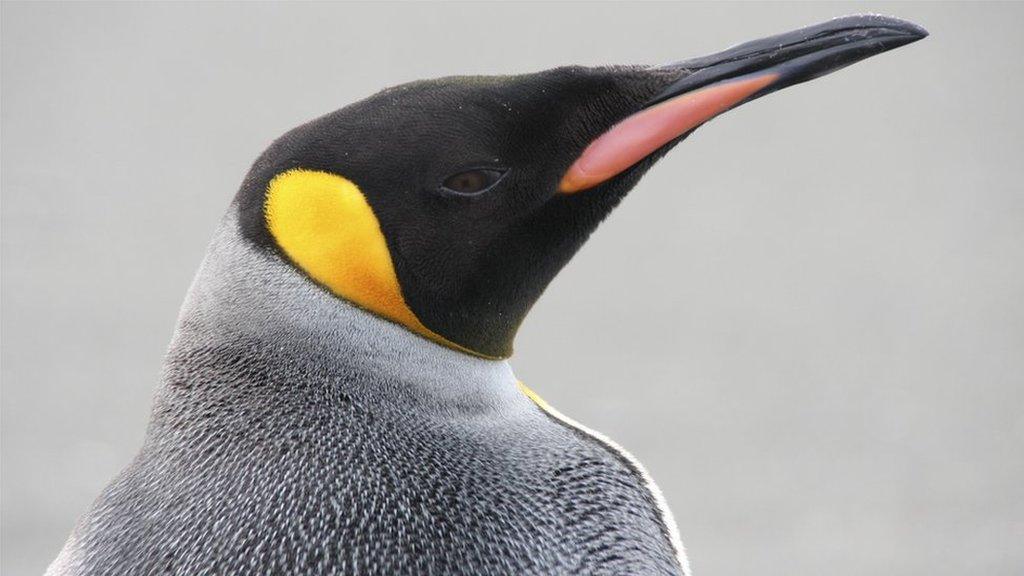
- Published20 January 2020
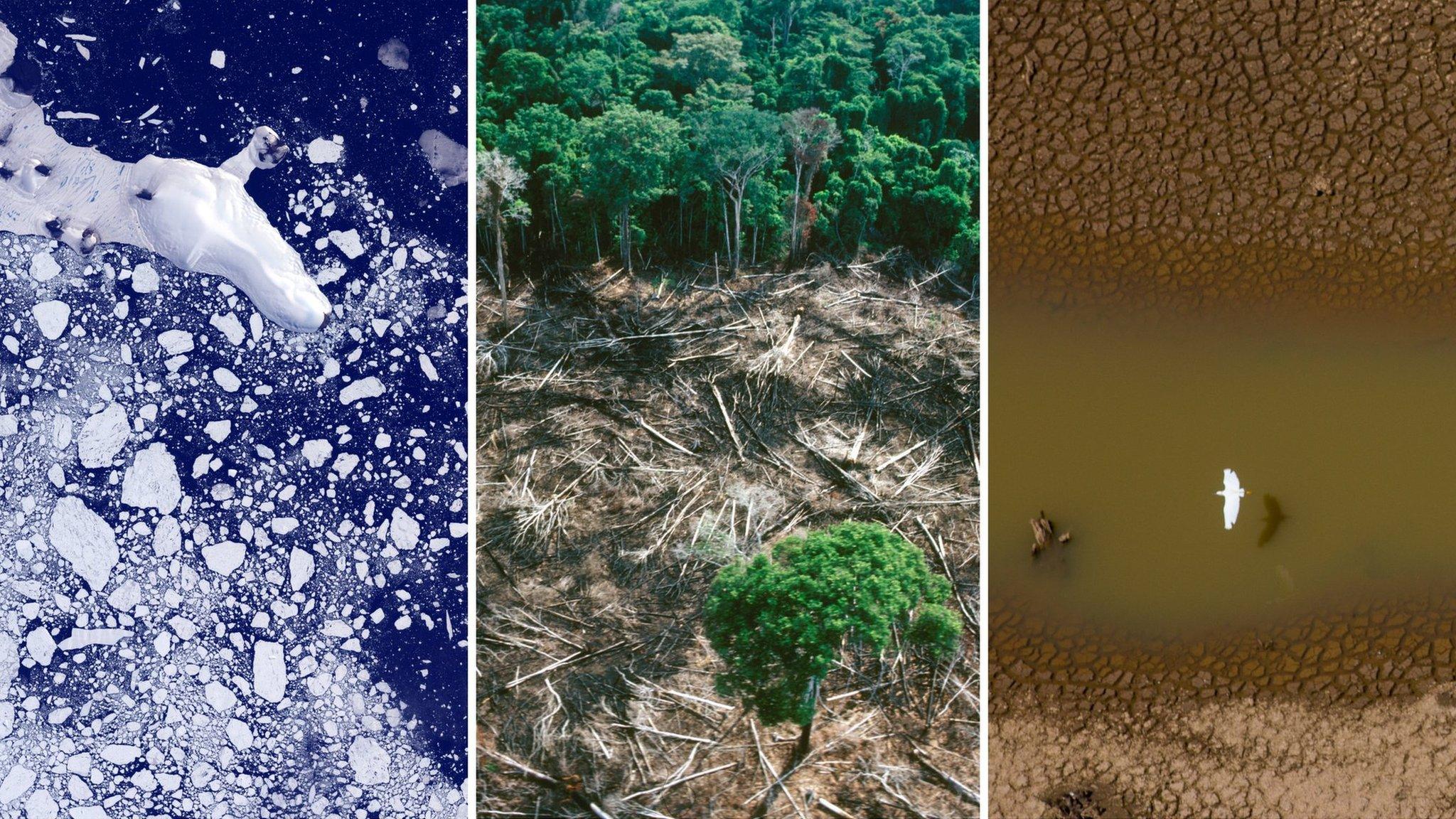
- Published5 November 2021

